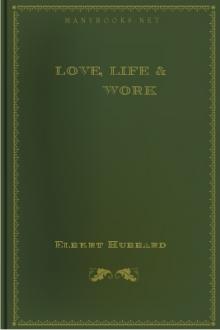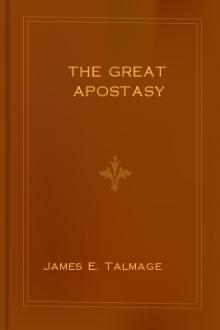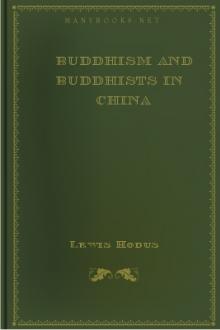Genre Philosophy. Page - 6

dialogue is what would be called in the language of Thrasyllus tentative or inquisitive. The subject is continued in the Phaedrus and Symposium, and treated, with a manifest reference to the Lysis, in the eighth and ninth books of the Nicomachean Ethics of Aristotle. As in other writings of Plato (for example, the Republic), there is a progress from unconscious morality, illustrated by the friendship of the two youths, and also by the sayings of the poets ('who are our fathers in wisdom,' and yet only tell us half the truth, and in this particular instance are not much improved upon by the philosophers), to a more comprehensive notion of friendship. This, however, is far from being cleared of its perplexity. Two notions appear to be struggling or balancing in the mind of Socrates:--First, the sense that friendship arises out of human needs and wants; Secondly, that the higher form or ideal of friendship exists only for the sake of the good. That friends are not necessarily either like or unlike, is also a tru

mits this question because he does not consider that it has any more bearing upon the essentials of religion, than have the theories we may hold about the relation of God and the moral law to the starry universe. The latter is a question for the theologian, the former for the psychologist. Whether we are mortal or immortaea of this book very roughly, these two antagonistic typical conceptions of God may be best contrasted by speaking of one of them as God-as-Nature or the Creator, and of the other as God-as-Christ or the Redeemer. One is the great Outward God; the other is the Inmost God. The first idea was perhaps developed most highly and completely in the God of Spinoza. It is a conception of God tending to pantheism, to an idea of a comprehensive God as ruling with justice rather than affection, to a conception of aloofness and awestriking worshipfulness. The second idea, which is opposed to this idea of an absolute God, is the God of the human heart. The writer would suggest that the great outline of the

cut off from the race of Israel with all the prescribed curses of excommunication upon his head.
Spinoza was not present when excommunication was pronounced upon him. He had left Amsterdam to stay with some Collegiant friends on the Ouwerkerk road, for, so one tradition relates, an attempt had been made by one of the over-righteous upon Spinoza's life soon after he became an object of official displeasure. Although Spinoza was, throughout his life, ready to suffer the consequences of his opinions and actions, he at no time had the least aspiration to become a martyr. When Spinoza heard of his excommunication he sent a spirited and unyielding reply. The spirit if not the words of that reply (not yet discovered) eventually made its way into the Tractatus Theologico-Politicus. For the rest of his life, whenever he had occasion to refer to the Jews, Spinoza referred to them as he did to the Gentiles--a race to which he did not belong. And immediately, with the perfect grace and humor of a culture

is an ego, but how all-important it is that one be a self-conscious ego, -- a self-conscious, self-willed person.
Those not self-conscious and self-willed are constantly acting from self-interested motives, but clothing these in various garbs. Watch those people closely in the light of Stirner's teaching, and they seem to be hypocrites, they have so many good moral and religious plans of which self-interest is at the end and bottom; but they, we may believe, do not know that this is more than a coincidence.
In Stirner we have the philosophical foundation for political liberty. His interest in the practical development of egoism to the dissolution of the State and the union of free men is clear and pronounced, and harmonizes perfectly with the economic philosophy of Josiah Warren. Allowing for difference of temperament and language, there is a substantial agreement between Stirner and Proudhon. Each would be free, and sees in every increase of the number of free people and their intelligence an a

and his helpers go from town to town and fromcity to city and work up this excitation as a business. They are paidfor their services a thousand dollars a week, or down to what they canget from collections. Sometimes they work on a guaranty, and at othertimes on a percentage or contingent fee, or both.
Towns especially in need of Mr. Chapman's assistance will please sendfor circulars, terms and testimonials. No souls saved--no pay.
The basic element of the revival is hypnotism. The scheme of bringingabout the hypnosis, or the obfuscation of the intellect, has takengenerations to carefully perfect. The plan is first to depress thespirit to a point where the subject is incapable of independent thought.Mournful music, a monotonous voice of woe, tearful appeals to God,dreary groans, the whole mingled with pious ejaculations, all tend toproduce a terrifying effect upon the auditor. The thought of God'sdispleasure is constantly dwelt upon--the idea of guilt, death andeternal torment. If the victim

he human organism, and beyond the range of muscular action, should be subjected to further scientific examination, with a view to ascertaining its true source, nature, and power."[3]
One selection is now given from the Minutes of this Sub-Committee, illustrating the nature of the Evidence that came before them:--
"EXPERIMENT XXXVIII., Dec. 28th [1869].--Eight members present. Phenomena: Rapping sounds from the table and floor, and movements of the table, with and without contact. The alphabet was repeated, and the following letters were rapped: 'A bad circle--want of harmony.' At the letter f, the table tilted three times, and at the letters a, r, gave several forcible horizontal movements, tilting at either end.
"Raps, with slight tiltings of the table, beating time to the measure of a song. Two or three poems were recited, to the measure of which there were loud raps from the table and floor, and the table also marked the metre by various horizontal movements and tiltings.

e chose twelve men, whom He ordained to the apostleship:--"And He ordained twelve, that they should be with Him, and that He might send them forth to preach."--(Mark 3:14.) Again: "And when it was day, he called unto him his disciples: and of them he chose twelve whom also he named apostles."--(Luke 6:13; compare Matt. 10:1, 2.) The twelve special witnesses of Him and His work were sent out to preach in the several cities of the Jews. On this, their first mission, they were instructed to confine their ministrations to the house of Israel, and the burden of their message was "The kingdom of heaven is at hand."--(Matt. 10:7; study the entire chapter.) They were told to use the power with which they had been invested by ordination, in preaching, in healing the sick, in raising the dead even, and in subduing evil spirits; the Master's admonition was, "Freely ye have received, freely give." They were to travel without money or provisions, relying upon a higher power to supply their needs through the agency of thos

s. They were careful to preserve the number of fighting men and women at 20,000, which is equal to that of the present military force. And so they passed their lives as guardians of the citizens and leaders of the Hellenes. They were a just and famous race, celebrated for their beauty and virtue all over Europe and Asia.
And now I will speak to you of their adversaries, but first I ought to explain that the Greek names were given to Solon in an Egyptian form, and he enquired their meaning and translated them. His manuscript was left with my grandfather Dropides, and is now in my possession...In the division of the earth Poseidon obtained as his portion the island of Atlantis, and there he begat children whose mother was a mortal. Towards the sea and in the centre of the island there was a very fair and fertile plain, and near the centre, about fifty stadia from the plain, there was a low mountain in which dwelt a man named Evenor and his wife Leucippe, and their daughter Cleito, of whom Poseidon became

teraryability and religious fervor to the spreading of the new religion andits success was in no small measure due to their efforts. As a result ofthis early association the tenets of the two religions seemed so muchalike that various emperors called assemblies of Buddhists and Taoistswith the intention of effecting a union of the two religions into one.If the emperor was under the influence of Buddhism he tried to force allTaoists to become Buddhists. If he was favorable to Taoism he tried tomake all Buddhists become Taoists.
But such mandates were as unsuccessful as other similar schemes havebeen. In the third century A. D. after the Han dynasty had ended, Chinawas broken up into several small kingdoms which contended for supremacy,so that for about four hundred years the whole country was in a state ofdisunion. One of the strong dynasties of this period, the Northern Wei(386-535 A. D.), was distinctly loyal to Buddhism. During itscontinuance Buddhism prospered greatly. Although Chinese wer

beginning anti-monastic. It is not rare for history to have similar contradictions to record. The meek Galilean who preached the religion of a personal revelation, without ceremonial or dogmatic law, triumphed only on condition of being conquered, and of permitting his words of spirit and life to be confiscated by a church essentially dogmatic and sacerdotal.
In the same way the Franciscan movement was originally, if not the protest of the Christian consciousness against monachism, at least the recognition of an ideal singularly higher than that of the clergy of that time. Let us picture to ourselves the Italy of the beginning of the thirteenth century with its divisions, its perpetual warfare, its depopulated country districts, the impossibility of tilling the fields except in the narrow circle which the garrisons of the towns might protect; all these cities from the greatest to the least occupied in watching for the most favorable moment for falling upon and pillaging their neighbors; sieges terminat